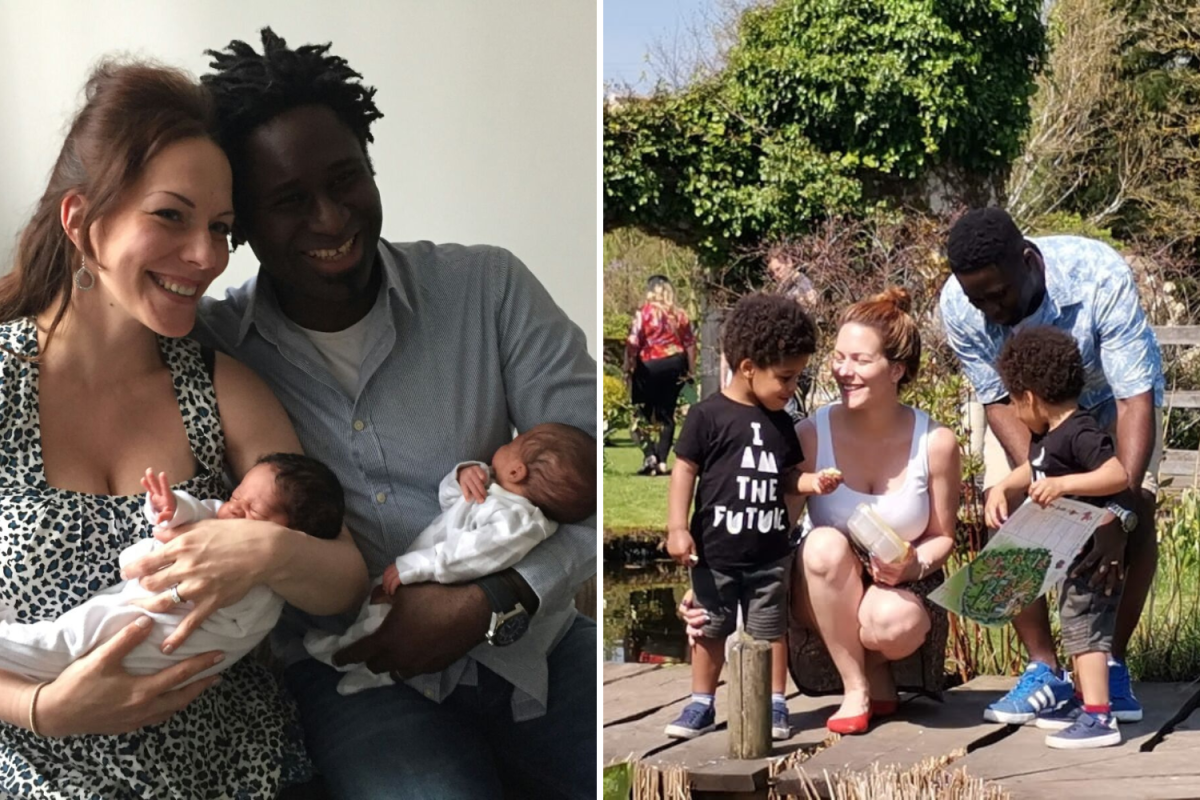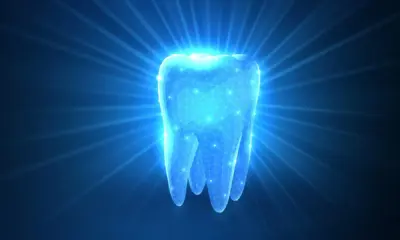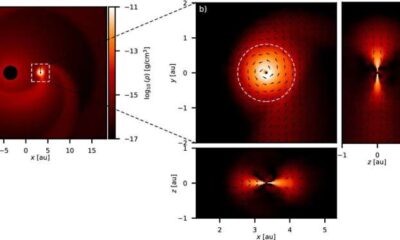Health
Mother Turns Pain into Purpose: Battling Postpartum Depression

After giving birth to twins, Ivana Poku faced a harrowing battle with postpartum depression that left her feeling isolated and terrified. Now, as a maternal mental health advocate, she shares her story to help other mothers understand they are not alone in their struggles.
In those early months of motherhood, Poku experienced a moment that changed everything. While at home alone with her infants in Scotland, she felt an overwhelming urge to harm one of her babies. “It was like something possessed my brain and my body,” she recalled in an interview. Recognizing the danger, she quickly secured the baby in a chair and locked herself in her bedroom, facing the terrifying realization that something was profoundly wrong.
Poku, then 32, later reflected on her experience, acknowledging that although she was never formally diagnosed, her symptoms aligned with postpartum depression, potentially bordering on postpartum psychosis. Instead of experiencing the anticipated rush of love for her children, she was engulfed by numbness and guilt. “Postnatal mood changes are more common than many people realize,” said clinical psychologist Dr. Shahrzad Jalali, author of The Fire That Makes Us.
According to Dr. Jalali, approximately 70 to 80 percent of new mothers experience what is known as the “baby blues” shortly after giving birth. This emotional period typically resolves within a few weeks. However, when symptoms linger or disrupt daily life, they may escalate into a clinical diagnosis of postpartum depression, which affects about one in seven women worldwide.
Poku felt trapped, believing that her inability to bond with her children made her a terrible mother. “The silence was the killer,” she said. Her isolation deepened when she moved to a new town with no friends or family nearby. Her husband worked long hours, leaving her alone with her thoughts, which grew increasingly dark. “You don’t know you have depression,” she explained. “You just feel like you’re failing.”
Despite receiving information on support resources, reaching out for help felt impossible. The turning point came when a friend visited unexpectedly and found Poku in distress. “I told her everything, and she didn’t judge me. That was so liberating,” Poku said. Her husband’s support also played a crucial role in her recovery, as he reminded her that struggling did not equate to weakness.
Finding Strength in Vulnerability
Poku’s journey did not end with recovery; it ignited her mission to support others facing similar challenges. She began speaking to mothers and discovered that many who appeared to have it all together were also suffering in silence. This inspired her to launch Mum’s Journey, a blog where she candidly discusses the realities of motherhood and postpartum mental health. She later published a book titled Motherhood: The Unspoken, which compiles stories from mothers worldwide, providing a comforting resource for those feeling alone.
Poku also developed a course focused on emotional well-being for expectant mothers, aiming to prepare them for the challenges of new motherhood. “If I had known those feelings were normal, I wouldn’t have struggled in silence,” she remarked, emphasizing the importance of proper education in preventing isolation.
Dr. Jalali echoed this sentiment, stating, “The most important thing is for a woman to know they’re not alone and that help is available. Postpartum depression is a very treatable condition.” She encourages mothers experiencing persistent sadness or intrusive thoughts to reach out for help and highlights the importance of support from family and friends during this difficult time.
Today, Ivana Poku is a mother of three and a respected advocate for maternal mental health. Her lived experiences have established her as a trusted voice in the community, offering hope and understanding to women who resonate with her journey. “Many mothers have told me I helped them more than a psychologist,” she shared, demonstrating the power of shared experiences in healing.
As societal awareness of postpartum mental health grows, Poku’s efforts aim to dismantle the stigma surrounding these issues, ensuring no mother feels alone in her struggles.
-

 Science2 months ago
Science2 months agoUniversity of Hawaiʻi at Mānoa Joins $25.6M AI Initiative for Disaster Monitoring
-

 Health2 months ago
Health2 months agoNew Gel Offers Hope for Regrowing Tooth Enamel in Dentistry
-

 Science1 month ago
Science1 month agoALMA Discovers Companion Orbiting Red Giant Star π 1 Gruis
-

 Lifestyle1 month ago
Lifestyle1 month agoPark Jung Min’s Endearing Moment with Hwasa Steals Show at Awards
-

 Science2 months ago
Science2 months agoIROS 2025 to Showcase Cutting-Edge Robotics Innovations in China
-

 Lifestyle2 months ago
Lifestyle2 months agoStone Island’s Logo Worn by Extremists Sparks Brand Dilemma
-

 Lifestyle2 months ago
Lifestyle2 months agoSampson County Celebrates Susie Faison’s 100th Birthday Milestone
-

 Health2 months ago
Health2 months agoStartup Liberate Bio Secures $31 Million for Next-Gen Therapies
-

 Lifestyle2 months ago
Lifestyle2 months agoMary Morgan Jackson Crowned Little Miss National Peanut Festival 2025
-

 Health2 months ago
Health2 months agoTop Hyaluronic Acid Serums for Radiant Skin in 2025
-

 Science2 months ago
Science2 months agoArizona State University Transforms Programming Education Approach
-

 Politics2 months ago
Politics2 months agoJudge Considers Dismissal of Chelsea Housing Case Citing AI Flaws








